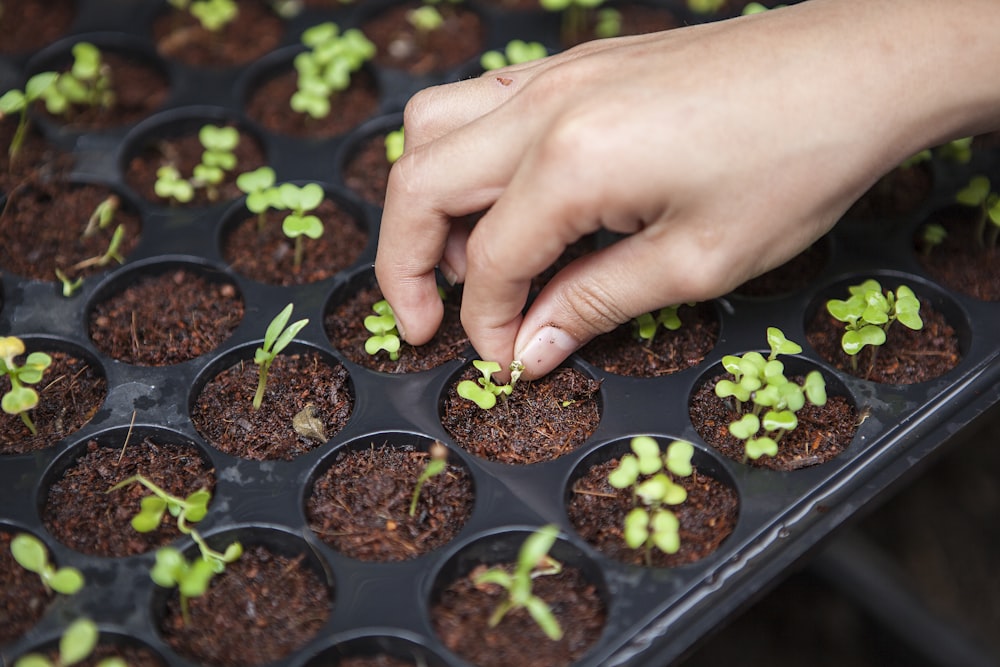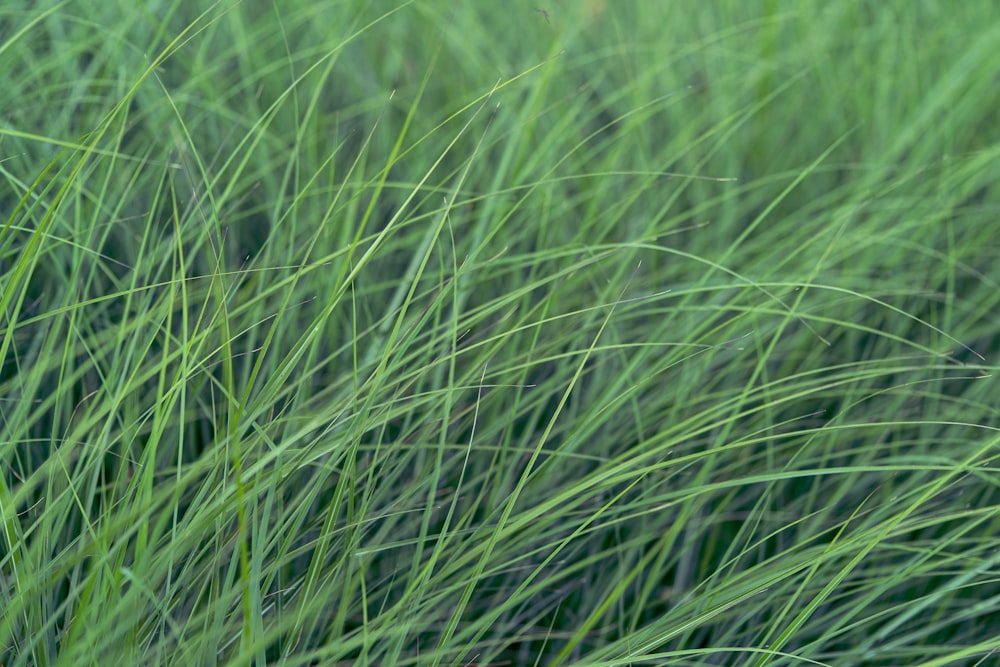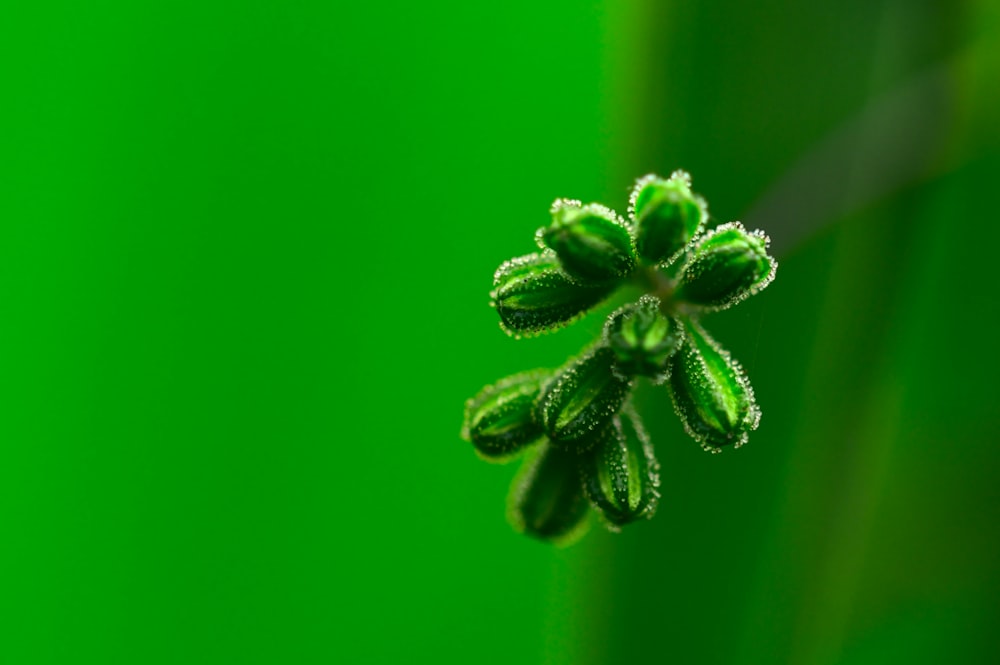Last Updated on February 2, 2023 by Derek

Your grass seeds will require 8 days at on average to germinate. The grass seedlings are usually expected to emerge between a period of 7-21 days.
Next, the seedlings tend to undergo a developmental time for putting down its roots. Here, it forms the familiar foliage or top growth.
The top growth ends up growing at a rate of about 2-3 cm every week. But it depends on the grass species and numerous environmental factors.
Will Grass Seed Germinate on Top of Soil?

Yes, grass seed can absolutely germinate on top of the soil. If soil happens to be placed on top of the grass seeds, then germination will face issues.
It is advisable to place a thin layer of topsoil or mulch over the seeds. This will help in keeping them warm and moist, promoting their growth.
It isn’t advantageous to bury your grass seeds because the baby grass shoots fail to break through in the presence of excess soil. But it also depends on the type of grass seed but most of them usually possess a tiny oval-like shape.
Will Grass Seed Grow If I Just Throw It Down?
No, unfortunately not and even if it does, the results won’t be as expected. Even if the grass seeds on the surface of the soil sprout, the rate of germination will surely decrease.
The results won’t be as good compared to when you actually cover the seeds with 1/4 inch of soil. Your grass seeds will end up drying out if left uncovered.
Plus, the grass seeds are prone to getting runoff by water or eaten by birds. In addition, the life expectancy of these uncovered seedlings gets reduced by direct contact with excess sunlight.
When Is the Best Time to Plant Grass Seed?
Let us look at the best time for planting cool-season and warm-season grass seeds:
Cool Season Grass Seeds
If you wish to plant cool-season grass seeds, then fall is the best time for it. The soil tends to be warm during early autumn as a result of summer sun from past months.
Many factors like cool evenings, warm soil, and moderate temperatures allow for fast germination and its establishment. These grass seeds germinates well when the temperature of the soil reaches 50-60 degrees F.
If you live in the far north, then the right planting time and cool fall temperature reaches early. But you must plant these seeds 45 days prior to the first fall frost’s estimated date.
You need to do that before the soil and air temperature drop to unfavorable levels. Fall usually garners more precipitation which reduces the possibility that the cool season might dry out.
Plus, it decreases the need for additional watering. It saves you that extra trouble.
Warm Season Grass Seeds
For warm-season grass seeds, Spring is the most favorable time to plant. These seeds best germinate whenever the soil temperature happens to be consistent between 65–70-degree F.
When you plant during late of spring and early summer, you have the upper hand of early seasonal rains and warm soil. They help in keeping the soil moist during the germination process and establishment.
The best planting time of the warm season tends to differ by location. For instance, Mid-April – Mid-May acts as the best time for planting these seeds in California.
Also, Lawn owners plant their seeds from late of May throughout June in Southern and Central parts of Arkansas. You should plant 90 days prior to the first fall frost establishes well before the winter season.
These summer grasses become dormant once the temperature falls to 55 F. Here, the seedlings that’s planted late fail to prepare for whatever’s ahead.
These seeds obtain a natural boost from the warmth of summer with proper timing. It also receives active growth and proper development before the cooling temperatures bring the dormant winter.
How Long Does It Take for Grass Seed to Grow in the Fall?
The fall season is a favorable time to plant your grass seedlings. You can expect it to grow within a timeframe of 2-4 weeks in October.
This applies to both the cool-season and warm-season seedlings, especially the latter in particular. But cool-season grass seeds will still have no problem germinating and taking root in the late fall’s cooler temperatures.
But you won’t be able to witness its full potential until the spring season arrives.
How Can I Make Grass Seed Grow Faster?
You can speed up the growth process of your grass seeds by following these steps:
- To hasten the process of germination, lightly water your seeds in a frequent manner.
- You can purchase a coated seed or add a coating for a faster germination.
- Ensure that the soil is properly prepared for a quicker germination.
- Begin planting the grass seedlings whenever the temperature is correct.
- For a quicker Spring germination, plant the seedlings after the first frost.
- Your seeds shouldn’t be buried.
- Make sure these seedlings remain undisturbed.
How Long for Grass Seed to Grow 3 Inches?
The majority of the established grass tends to grow at a rate of over 2 to 6 inches every month. But the growth rate also depends on the variety of the seed that’s being grown.
So, for a grass seed to reach up to 3 inches, you can expect a month. The faster growth comes from the excess energy directed towards the elongation and vegetative phases of its growth cycle.
How Long Does It Take for Grass Seed to Germinate in October?
Your grass seedlings have an easier time germinating in the month of October. The seeds will need about 2-4 weeks to germinate.
Here, the warm-season grass seedlings germinate well during this period compared to the cool-season grass.
What are the 1 Week Grass Seed Germination Stages?

Grass seeds usually take more than a week i.e., 14-21 days. But you can hasten the germination process and have them ready in a week with proper attention and planning.
Here are the stages for germinating in a week:
- You need to properly prepare your soil, or your lawn is going to end up underperforming.
- Secondly, you must install an automatic irrigation system. It should be divided properly into zones based on factors like shade, water requirements, and sunlight.
- Ensure that the irrigation system is controlled using a modern timer that’s perfectly customizable.
- Next, you need to plant your grass seeds at the right time of the year. For instance, warm-season grass seedlings will have a hard time germinating during cool weather seasons.
- Ensure that you are covering the seed using a thin layer of seed covering or steer manure. It’s crucial to protect it from birds and garner enough nutrients and moisture.
- Irrigate lightly but daily and avoid letting the roots to dry out. Here, the modern timer will be useful.
- Start looking for areas that aren’t growing well and adjust your sprinkler accordingly.
How Long Does It Take for Grass Seed to Grow in Summer?
Your grass seeds will require anywhere between 10 to 14 days to grow during summer. However, there is a possibility that it might go even up to 30 days.
The timeline depends on many environmental factors and the variety of grass seeds.
Process of Grass Seed Germination Day by Day

The grass seeds should take on ample water for softening the outer husk. It also helps in flushing out the enzymes responsible for keeping the seeds dormant under a temperature that enables germination.
It’s typically 10-15 degrees centigrade based on the variety of seed. One should make it a priority to frequently water whenever you seed.
In this way, the seed gets to remain wet for a period of 24 to 48 hours to flush out the inhibiting enzymes. The seed will revert back to its dormant condition if the watering aren’t done correctly.
Here, the key is to water often but in a light manner, preventing the seed from becoming dry. After the completion of this stage, more of the enzymes tend to get activated for enabling the seed to use stored food and begin germinating.
Oxygen is also required here a lot during this stage. A tiny root shoot will start to arise which must come in contact with the moist aerated soil to fully develop into a proper grass plant.
Constant watering is needed in this stage because the seedling is extremely delicate and possess one shallow root. You need to do this, or its roots will wither and die.
The grass plant starts photosynthesizing and developing more roots in 10 to 21 days. Here, the leaves start to appear depending on the seed mixture and temperature.
How Often Should I Water Grass Seed?
You need to water twice every day for the grass seed to grow up at first. However, ensure that you reduce it to only once per day after a week.
When Should I Stop Watering New Grass Seed?
The new grass seeds shouldn’t be watered daily after it has successfully germinated, and its grass blades span up to 1-Inch.
FAQs
What Happens If I Miss a Day of Watering Grass Seed?
Nothing bizarre will happen if you miss a day of watering your grass seeds. The problem will come when you stop watering it consecutively.
Can You Use Too Much Grass Seed?
Yes, you can but it’s not recommended to do so. Excess use of grass seeds can lead to undue competition for important resources like nutrients, light, and water.
Should Grass Seeds be Buried?
It’s not advisable to bury your grass seeds. They require ample sunlight to activate the process of germination.
Is Morning Dew Enough for Grass Seed?
Morning dew is useful to make the soil moist for the grass seeds. But you need proper watering for the grass seeds to germinate.
Key Takeaways
- Grass seeds are of two types i.e., cool season and warm season.
- You shouldn’t bury your grass seeds as it hinders them from germinating.
- A thin layer of topsoil should be placed over the seeds to adequately cover it.
- Avoid casually throwing them on the ground.
- Watering of your seeds should be done lightly.









